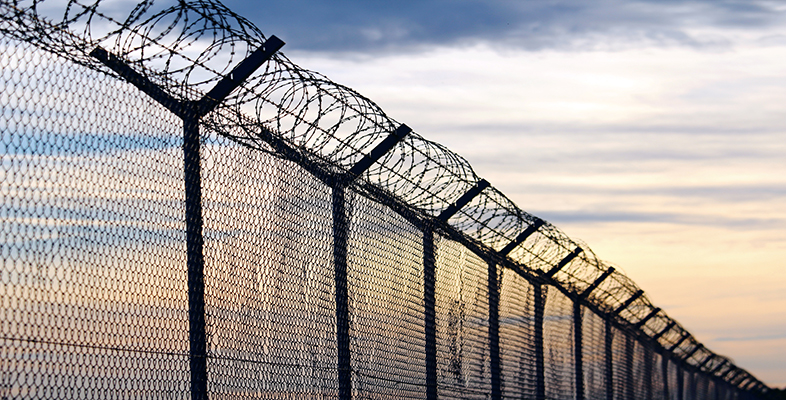3.2 Global governing of prisons in Britain?
Take a look at this article by John Harris from The Guardian (29 July 2013): Serco: the company that is running Britain [Tip: hold Ctrl and click a link to open it in a new tab. (Hide tip)] .
The whole article is quite long, so please focus particularly on the first few paragraphs as far as the paragraph which ends in ‘Not for nothing does so much coverage of its work include the sentence “the biggest company you’ve never heard of”’ (a little above the picture of ‘A Serco Clinic Truro’) and then read the last five paragraphs, starting with the one that begins ‘The controversy surrounding Thameside prison …’.
Activity 5 Serco and the prison industrial complex
Following your reading of the article (or parts of it) by John Harris in The Guardian, now refer back to the diagram of the prison industrial complex, and make some notes on how elements of the industrial prison complex are illustrated in the discussion of Serco. For example, consider what the article suggests about relationships between the state and powerful non-state actors (especially Serco), and how this links to issues of power, inequality and harm.
Discussion
Reading the article may have made you question some of the relationships, and whether improper relationships might form between different actors within criminal justice systems, or as to whether the profit-led nature of corporations might result in a focus on profits over ‘justice’ outcomes. Questions also arise about the power of private prisons providers in shaping the future of the industry and processes of criminalisation, surveillance and punishment. You have probably also considered the role of Serco terms of a range of social areas, which, according to the ‘prison industrial complex’ diagram, are interconnected with issues of crime, and/or harm associated with inequalities, and power.
The interconnections between state and non-state actors may well have also featured in your notes. You may also have considered critically which ‘harms’ are the criminalised ones that we tend to focus on and which harms receive less attention. On the one hand this might concern the harms that have resulted from actions for which people serve prison sentences. However, you might also consider, as we did in the case of Hurricane Katrina, the kinds of harms that result from inequalities, and from the actions and inactions of state and non-state powerful actors. You might also have connected this with concerns about whether profit-oriented global actors such as multi-national corporations are best placed to have such power in the field of criminal justice.
